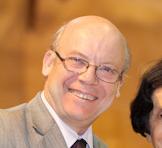
PROJECT SUMMARY:
Stroke is the second leading cause of death and the leading cause of disability in adults. An ischaemic stroke occurs when there is a blood clot occurring in a vessel in the brain, causing death of neurons and other brain cells due to lack of oxygen and glucose. Clotting occurs when the coagulation cascade is activated normally in response to damage to blood vessel walls. Clotting is a complicated process, but one of the major elements in the clotting cascade are platelets. Platelets are very important as they play a major role in coagulation and release many molecules essential for clotting to occur in a timely fashion.
Clotting can occur at inappropriate times causing blood vessel blockage. If this occurs in a blood vessel in the brain, a stroke occurs. At present, therapeutic options to treat stroke are limited and there is a clear need to improve current clinical practices to prevent and treat stroke.
In this project, we will investigate the unsuspected protective effect of platelet products on brain cell survival. Although it is well known that platelets release factors important for clot formation, many other factors are released from platelets with unknown function. In preliminary work we showed that unidentified platelet derived factors were able to protect brain cells (neurons) from injury induced by various damaging agents. This was an unexpected finding and opens a number of possibilities.
The funding we will receive from the Brain Foundation will allow us to further explore the protective effect of these platelet derived factors (referred to as “PRF’s”) on brain cells in vitro and also in our well developed in vivo models of brain injury. We are particularly interested in identifying the active molecule(s) that are responsible for this protective effect. A number of candidate factors have already been identified using mass spectrophotometric analysis. We will also determine whether these protective PRFs also have beneficial effects in other brain disorders, including traumatic brain injury.



 The Brain Foundation is the largest, independent funder of brain and spinal injury research in Australia. We believe research is the pathway to recovery.
The Brain Foundation is the largest, independent funder of brain and spinal injury research in Australia. We believe research is the pathway to recovery.